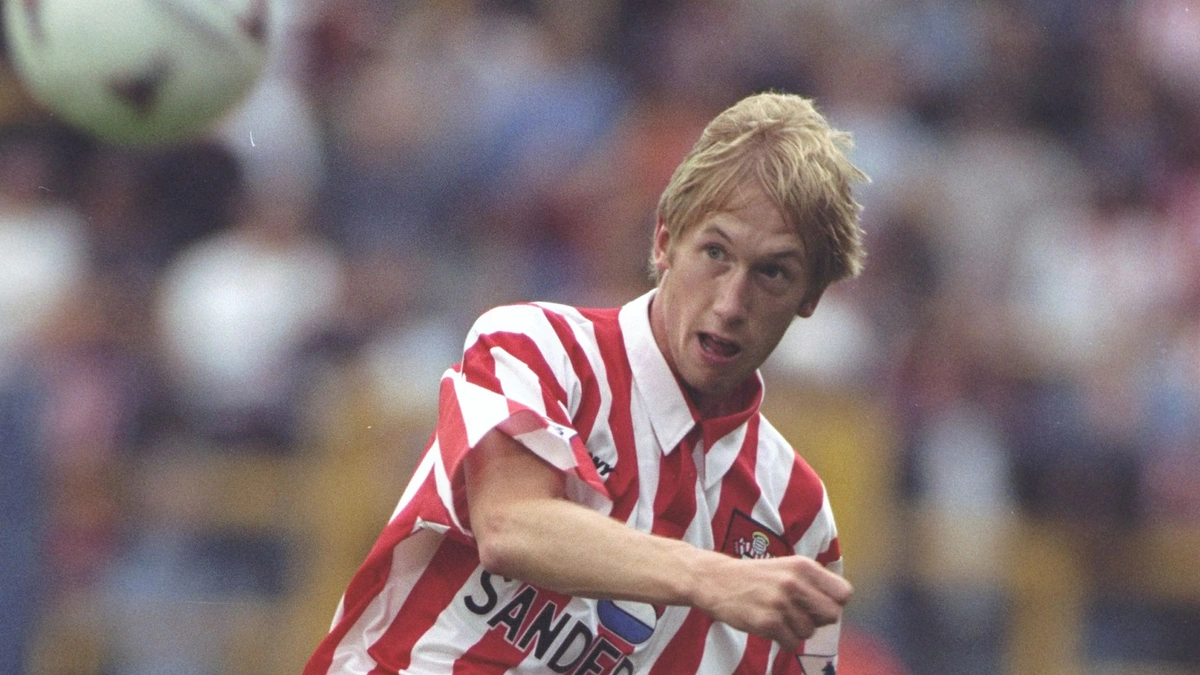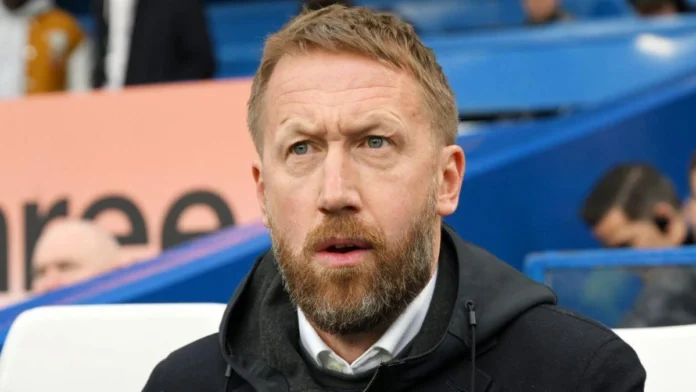Graham Potter . The name alone conjures up a whirlwind of opinions in the footballing world. From the tactical wizardry that captivated fans at Östersund and Swansea to the frustratingly inconsistent spell at Chelsea, Potter’s career has been anything but predictable. But here’s the thing: to truly understand the Graham Potter story, you need to go beyond the headlines and delve into the why behind his journey.
Let’s be honest, his time at Chelsea didn’t go as planned. The expectations were sky-high, the squad was bloated, and the results simply weren’t there. But was it all Potter’s fault? That’s the question we need to unpack. Instead of focusing on the obvious, I’m going to dig into the underlying factors that made his tenure such a challenge, and what it says about the modern game.
The Tactical Maverick | Potter’s Vision

Potter isn’t your typical shout-from-the-sidelines, fire-and-brimstone manager. He’s a thinker, a strategist, a coach who believes in building a cohesive team based on intricate tactical principles. His time at Östersund, a small Swedish club, is legendary. He took them from the fourth tier to the Europa League, playing an attractive, possession-based style of football. What fascinates me is how he managed to instill such a clear philosophy in a team with limited resources.
Then came Swansea, where he again impressed with his tactical flexibility and ability to develop young players. Brighton was where he truly made his mark in the Premier League. He transformed them into a team that consistently punched above its weight, playing a fluid, attacking brand of football that had fans buzzing. His style, often described as a possession-based approach with tactical flexibility, earned him plaudits. You could see clear patterns of play, something many teams struggle to achieve. But, and it’s a big but, translating that success to a club like Chelsea proved to be a different beast altogether.
Chelsea | A Mismatch of Philosophies?
Chelsea, with its history of demanding owners and quick managerial turnarounds, presents a unique set of challenges. The pressure to win immediately is immense, and patience is often a scarce commodity. Here lies part of the problem. Potter’s patient, methodical approach clashed with the club’s win-at-all-costs mentality. Building a cohesive team takes time, and time was something he simply wasn’t afforded.
Plus, let’s not forget the sheer size of the Chelsea squad. With a plethora of expensive signings arriving every transfer window, Potter faced the daunting task of managing a bloated roster and finding the right combinations on the pitch. It’s like trying to solve a Rubik’s Cube blindfolded! Sources within the club suggested the squad was difficult to manage, with several players unhappy with their playing time. The managerial challenges were evident.
It’s easy to blame Potter for Chelsea’s struggles, but a closer look reveals a more nuanced picture. The club’s chaotic structure, the lack of patience, and the sheer size of the squad all contributed to his downfall. He joined at a time of ownership change and great instability at the club. The Chelsea experiment was always going to be a risk.
What’s Next for Potter? Rebuilding His Image
The Chelsea experience undoubtedly dented Potter’s reputation. But his talent and tactical acumen are undeniable. The question now is: where does he go from here? I initially thought he might take some time away from the game, but I realized that he’s probably itching to get back in the dugout and prove himself.
A move to another Premier League club could be a good option, perhaps one where he’s given more time and control to implement his vision. Alternatively, a stint in a different league, such as Serie A or La Liga, could provide a fresh challenge and allow him to showcase his abilities in a new environment. What about the future prospects ? I think that’s worth considering.
But here’s what fascinates me: Potter has the opportunity to learn from his mistakes at Chelsea and come back stronger. He needs to find a club that aligns with his philosophy and provides him with the stability and support he needs to succeed. He needs a place where he can implement a long-term strategy without immediate pressure. His time with the Brighton and Hove Albion team demonstrated that he is a competent leader. But can he bounce back?
The Pressure Cooker of Modern Football Management
Potter’s experience is a stark reminder of the pressures faced by modern football managers. The demands are higher than ever, the scrutiny is intense, and patience is in short supply. The coaching career is an extremely unstable one. Social media amplifies every mistake, and fans are quick to call for a manager’s head after a few bad results. This creates a climate of fear and instability, making it difficult for managers to build a long-term project.
What I see is that clubs need to be more patient and strategic in their approach to managerial appointments. They need to identify managers who align with their philosophy and provide them with the time and resources they need to succeed. Sacking a manager after a few months is rarely the answer. It simply creates more instability and sets the club back even further. There’s so much at stake. The Premier League spotlight does not show any mercy.
Potter’s story is far from over. He’s a talented coach with a clear vision, and I believe he has the potential to achieve great things in the future. He just needs the right opportunity and the right environment. So, next time you hear the name Graham Potter , remember that there’s more to the story than meets the eye.
FAQ | Decoding the Potter Enigma
What was Graham Potter’s biggest achievement before Chelsea?
His transformation of Östersund from a fourth-tier Swedish club to a Europa League participant is widely regarded as his greatest accomplishment.
Why did Potter struggle at Chelsea?
A combination of factors, including a bloated squad, a lack of patience from the owners, and a clash of philosophies, contributed to his struggles.
What style of football does Potter prefer?
He favors a possession-based, attacking style of football with tactical flexibility.
What kind of clubs might be a good fit for Potter in the future?
Clubs that align with his philosophy, provide him with stability, and allow him to implement a long-term vision.
Will Potter manage in the Premier League again?
It’s certainly possible, but he may also consider opportunities in other leagues.
Is Graham Potter a good manager?
His track record at Östersund, Swansea, and Brighton suggests he is a talented coach with a clear vision.

